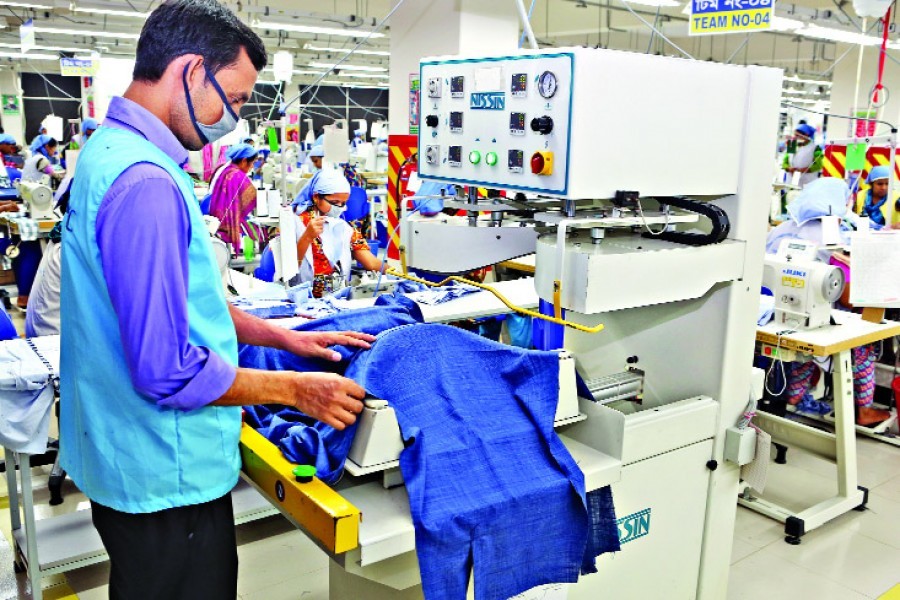No wonder that observance of the World Youth Skills Day is more of a formality here as elsewhere. The day passed this week with little or no fanfare. In fact, there is no need for ceremonial campaign to bring home the necessity of equipping our youths with skills of all possible variety in the shortest possible time. The National Skills Development Authority (NSDA), however, organised an event in observance of the day chaired by the education minister where speakers stressed on grooming the youth with new generation skills and also on institutional recognition for tapping the potential of demographic dividend.
Developing skills is an open-ended issue. Although it is initially the job markets at home and abroad that come to mind, the idea of skill development is integral to the making of efficient human resource that besides taking care of itself can contribute to the economy in myriad forms and shapes. It is here that skill is essentially a matter of developing youths, in various areas of activities. While higher skill is a matter that concerns the educated groups, less educated groups are the potential target for hands-on skill development.
The key issue is about developing a national culture for nurturing and developing skills that can turn humans into resources. This is because, as yet, there is no known or lately innovated shortcut to skill development. Being a continuous process, it calls for persistent and comprehensive planning. Stray efforts in the name of skill development do not pay in the long run. Examples are aplenty of development programmes and industrial productivity languishing in deficiencies mostly from lack of sufficient skills on the part of the manpower engaged at various tiers. As a result, we are yet to see any noticeable improvement in meeting the prevailing skill gaps in various spheres of productivity. There has not been any stocktaking of quantifiable achievements from various programmes and projects undertaken by the public and private sectors, so far.
While deficiencies in skilled human resource at home is made up by large intake of foreigners in various productive sectors, export of unskilled workers abroad is destined to fetch very little in wages and salaries. In both cases, it is the lack of value addition that ultimately costs the country dearly.
It has been found that the country's garment sector alone hires the services of thousands of expat personnel to supervise the day-to-day running of the factories. Most of the jobs, as reports say, are not at all high-tech, but require thorough knowledge about machinery and equipment. According to reports, the country spends about $5.0 billion a year on overseas employees. On the other hand, Bangladeshi workers in foreign lands are mostly engaged in the low-end wage bracket for want of required skills that otherwise could have fetched them considerably higher incomes, accompanied with other perks such as job security, medical and health insurance facilities.
Since skilled manpower can cater to the needs at home and abroad, attention must be focused on sector-specific needs. One can hope to see this achieved only if skill development becomes integral to government policies. To start with, there has to be a thrust on vocational learning which, unfortunately is down the drains due mainly to misdirected education system of the country. There is thus a strong need for advocacy programmes to attract more and more youths to institutes where their learning will pay them gainfully in seeking jobs as well as in running independent production units or businesses as the case may be. In doing so, there is the critical need to have these vocational and technical institutes under the scanner to examine their capacities and resources in providing skills training. Chances are high that many of them will be found in a dire need of resources in terms of technology and manpower to steer skill-building in the right direction.
One of the important issues that must not be lost sight of is that given its demographic advantage at the moment, Bangladesh is better suited than most other countries to reap the benefit of having a large pool of skilled population. Currently, around 76 per cent of our population is within the working age bracket while around 2.1 million people are added to the workforce each year. Such an increase in workforce gives us a significant leverage in terms of demographic dividend while also allowing export of additional human resource to the wide world. On the other hand, development of skills can contribute to structural transformation and economic growth by enhancing employability and labour productivity. Investment in a high-quality workforce can create an integrated cycle, where relevant and quality skills enable productivity growth and foreign direct investment, which result in more and better jobs for the current workforce and more public and private investment in the education and training system. This, in turn, increases the employability and productivity for both the current and future workforce.
There is thus no alternative to ramping up investment in education for skill development. For the youths pursuing higher studies in the universities, the academia must thoroughly embrace skill development as an integral part of the learning process. Unfortunately, most public universities, let alone the private ones, barely have funds to conduct even basic research. The onus is squarely on the government to put things in place -- progressively and in a well planned manner.


